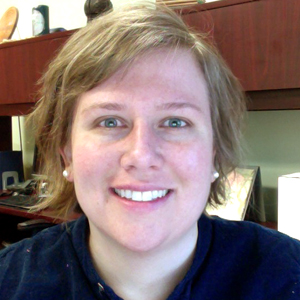
In Uganda, 360 out of every 100,000 mothers die of often preventable pregnancy conditions. To help save their lives, maternal and child health MPH student Sonja Ausen-Anifrani is working with an interdisciplinary team to develop “SMS Maama” — a mobile phone-based educational service that provides expectant mothers with pregnancy and postpartum information via text messages. The idea for the project was originally developed as part of an Acara Institute course in Spring 2015.
“We send out weekly informational text messages that are relevant to the woman’s pregnancy gestational age and include information on things like nutrition, HIV status, hygiene, postpartum tips, labor and delivery, and development of the fetus,” says Ausen-Anifrani.
The system also takes things a step farther by routinely sending users interactive messages that probe for symptoms that may be indicative of serious complications like preeclampsia and gestational diabetes. If users respond to the text, they get a small monetary incentive is sent to their mobile banking account, but what’s more, the network also alerts their midwives if they indicate symptoms of a potentially serious health complication.
The potential of the technology was recently recognized when the University’s Institute on the Environment gave SMS Maama a 2016 Acara Challenge Silver Award and $750 toward its pilot test expenses. In summer 2016, the group was awarded a $5,000 fellowship from the Acara Challenge and a matching fellowship from D-Prize.
Ausen-Anifrani continues to work with two original team members from that class: Katelyn Pastick who graduated from the University of Minnesota in 2015 with a B.S. in Genetics, Cell Biology, and Development and Meg KenKnight, a 2016 Nursing Graduate of the University of Minnesota with an interest in public health nursing. Pastick currently resides in Uganda and is part of a research study on HIV-related cryptococal meningitis.
The team plans to pilot the service this summer with 60 pregnant women receiving care from the Benedict Health Centre in Kampala, Uganda.
Learn more about why Ausen-Anifrani chose the University of Minnesota School of Public Health for her graduate work.
Learn more about the University of Minnesota’s work in Uganda or opportunities to contribute to the School of Public Health’s role in this effort.

